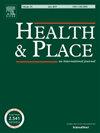在西非的药店创造隐私
IF 4.1
2区 医学
Q1 PUBLIC, ENVIRONMENTAL & OCCUPATIONAL HEALTH
引用次数: 0
摘要
西非存在大量未满足的避孕需求。在通常很容易获得的私人药房提供避孕措施,可能会减轻一些获取障碍。然而,隐私是药店提供避孕药具的一个关键问题,用户是否认为药店是私人的是模棱两可的。虽然一些药房用户注意到他们的隐私好处,但其他人则认为缺乏隐私。ACEPT项目的目的是在Côte科特迪瓦、塞内加尔和多哥的药店推行注射避孕药和植入避孕药。在三个国家实施ACEPT项目之前收集的基线数据包括对药店和使用者的深度访谈以及对药店的人种学观察。定性数据首先由国家工作队进行分析,并协作确定了紧急的跨领域主题。在西非的药房环境中,物理的私人空间很少。在这种情况下,用户使用策略来维护音频(不被听到)和视觉(不被看到)隐私。这些策略包括使用加密语言或将购买的避孕药具隐藏在其他产品中。药剂师是解读用户隐私线索和“配合”用户策略的专家。药剂师还通过安排货架和产品,并在需要时确定药房的私人角落,在药房设计“虚拟”私人空间。目前,隐私的构建方式使公共药房空间变得私密。随着药店避孕服务的扩大,特别是包括注射和植入管理,这种隐私创造可能需要得到解决,物理私人空间将变得至关重要。本文章由计算机程序翻译,如有差异,请以英文原文为准。
Creating privacy in pharmacies in West Africa
There is a substantial unmet need for contraception in West Africa. Providing contraception in private pharmacies, which often are highly accessible, may alleviate some access barriers. However, privacy is a key concern for provision of contraceptives in pharmacies, and whether users view pharmacies as private is ambiguous. While some pharmacy users note their privacy benefits, others suggest a lack of privacy. The ACEPT Project aims to introduce the administration of injectable and implant contraceptives into pharmacies across Côte d’Ivoire, Senegal, and Togo. Baseline data collected prior to implementation of the ACEPT project across the 3 countries included in-depth interviews with both pharmacies and users and ethnographic observations of pharmacies. Qualitative data were first analysed by country teams, and emergent cross-cutting themes were identified collaboratively. Physical, private space is scarce in pharmacy settings in West Africa. In this context, users employ tactics to uphold both audio (not being heard) and visual (not being seen) privacy. These tactics include using coded language or hiding a contraceptive purchase among other products. Pharmacists are experts at reading user privacy cues and “play along” with user tactics. Pharmacists also engineer “virtual” private space in the pharmacy through arrangement of shelving and products and identifying private corners of the pharmacy when needed. Privacy is currently constructed momentarily in ways that render the public pharmacy space private. As contraceptive services in pharmacies expand, especially to include injectable and implant administration, this type of privacy creation may need to be addressed, and physical private space will become essential.
求助全文
通过发布文献求助,成功后即可免费获取论文全文。
去求助
来源期刊

Health & Place
PUBLIC, ENVIRONMENTAL & OCCUPATIONAL HEALTH-
CiteScore
7.70
自引率
6.20%
发文量
176
审稿时长
29 days
期刊介绍:
he journal is an interdisciplinary journal dedicated to the study of all aspects of health and health care in which place or location matters.
 求助内容:
求助内容: 应助结果提醒方式:
应助结果提醒方式:


